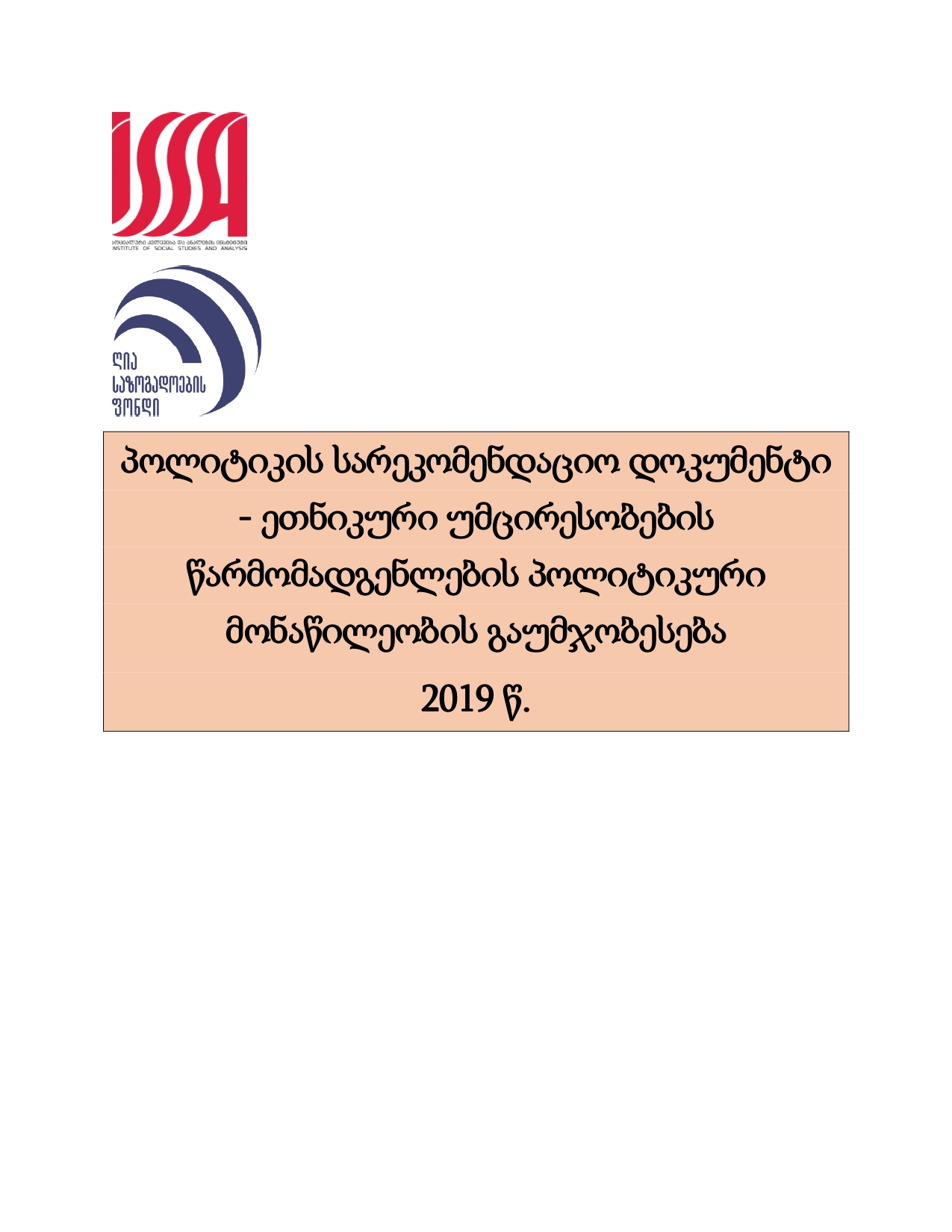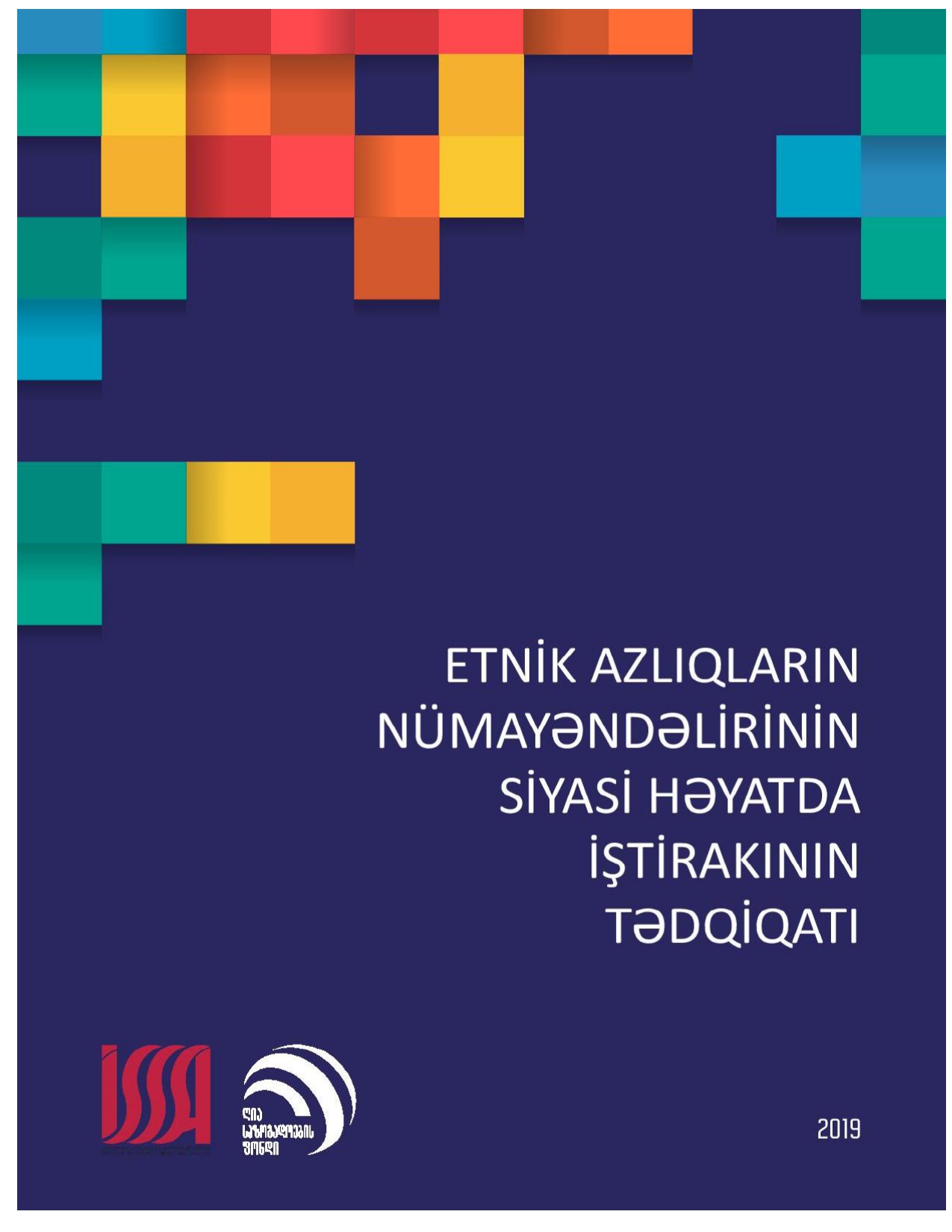Civic, political and social integration of ethnic minorities remains as one of the most problematic aspects of the development of Georgian Democracy. Despite many projects and initiatives implemented in this direction in the recent years, no significant progress has been made in terms of integration and inclusion of ethnic minorities in political life (Public Defender’s Office, 2018).
Currently, representatives of ethnic minorities make up approximately one sixth of the country’s population (large part – mainly ethnic Armenians and Azeris – densely populate the Southern (Samtskhe-Javakheti and Kvemo Kartli regions) and the Eastern parts of the country (Kakheti region), while small ethnic groups live in various regions of the country) (Legislative Herald of Georgia, 2015). Despite the above noted, as per numerous reports, their level of engagement in the public life of Post-Soviet Georgia is low and this is especially evident in regards to the participation of minorities in political life, as well as their representation in elected bodies and governmental agencies (Center for the Studies of Ethnicity and Multiculturalism, 2018). Exclusion of ethnic minorities from political life and their low level of integration in the public political field hamper the development of the democratic and stable state in Georgia.
Ethnic minority representatives do not have a sense of political identity with the state; their majority is in fact distanced from the Georgian public and leads somewhat autonomous or, in a worst case scenario, excluded life. The above noted has various reasons among which the language barrier is the leading one: absolute majority of ethnically non-Georgian citizens in densely populated areas do not know the state language (National Democratic Institute – NDI, 2018). Russian language, which was the only communication language with other ethnic groups in the Soviet period, significantly lost positions during the last fifteen years. Accordingly, representatives of ethnic minorities cannot receive full information on the processes going on in the country and more often, they are formally present in the higher legislative body.
One more reason for weak political inclusion is the passive attitude from the side of political parties. Political subjects superficially discuss or do not pay sufficient attention to the issues important to ethnic minorities in the programs of their political parties. In addition, the parties in the regions which are densely populated by ethnic minorities do not have strong party infrastructure, do not have contact with their potential electors, and fail to provide them with information on the programs and main strategies of the parties (Center for the Studies of Ethnicity and Multiculturalism, 2018).
The condition of women who are representatives of ethnic minorities is especially notable in the process of political alienation and exclusion, as the Georgian society is characterized with the generally low level of political participation of women both at local and national levels (UN Women, 2014). The level of political activity of ethnically non-Georgian women is even lower. This is partially supported by the political system as well. As per the current legislation, the Parliament of Georgia, as well as the local self-governments are formed based on the mixed electoral system (proportional-majoritarian). In practice, there is some interrelationship between the electoral system and the representation of women in politics. The type of the electoral system often has a substantial influence on the representation of women. The countries with proportional electoral system are far ahead of the countries with majoritarian system in terms of the representation of women in politics (United Nations, 2005).
Therefore, reasons for low levels of participation of the representatives of ethnic minorities in political life vary and it is important to study them. Problem analysis, as well as study into the institutional barriers for political participation must be conducted from the perspective of the representatives of ethnic minorities. Therefore, it is important to focus not only on micro, but also macro level factors in order to fully identify all the indicators of the political participation of the representatives of ethnic minorities as per the specific characteristics of target groups and regions.
Study of the Participation of Ethnic Minority Repr…English by on Scribd
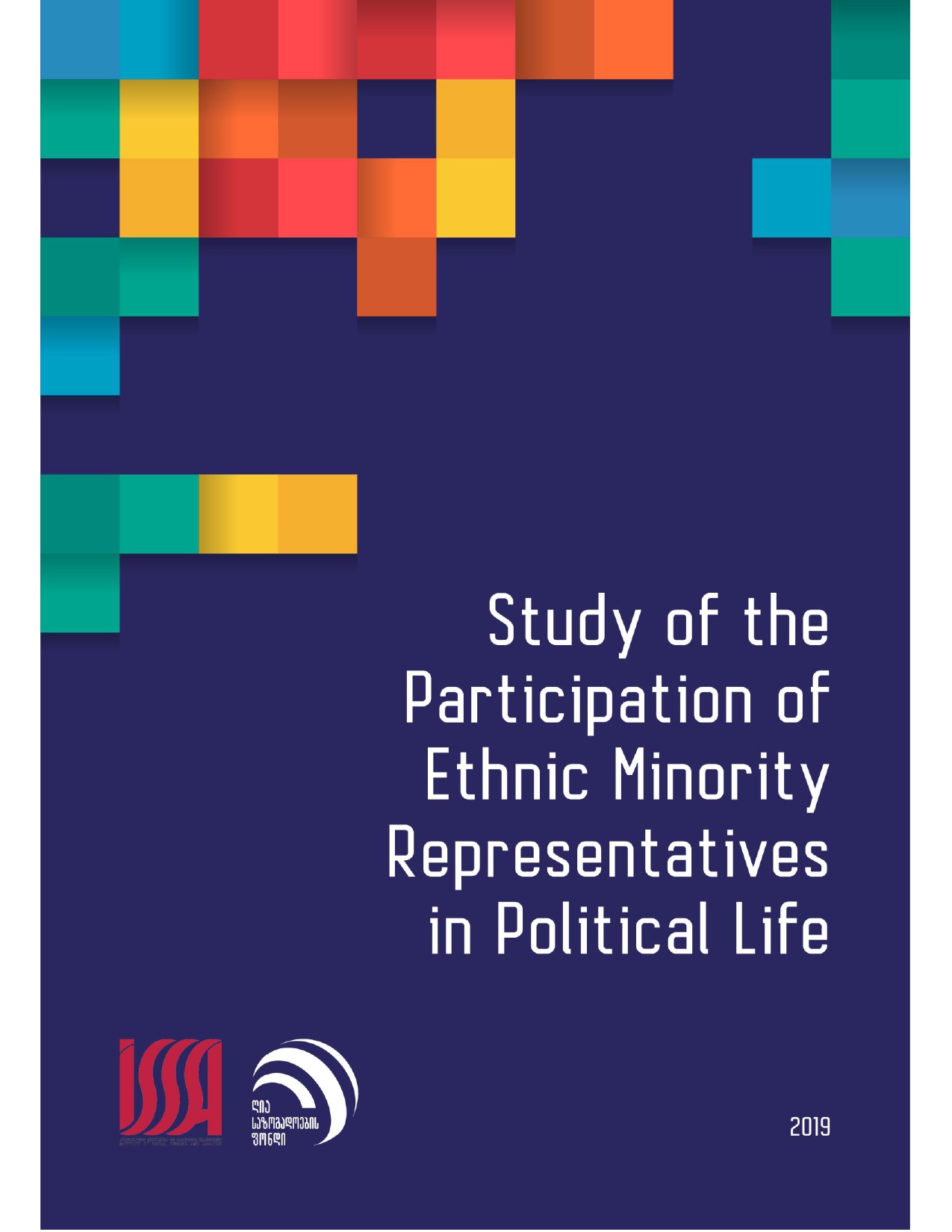
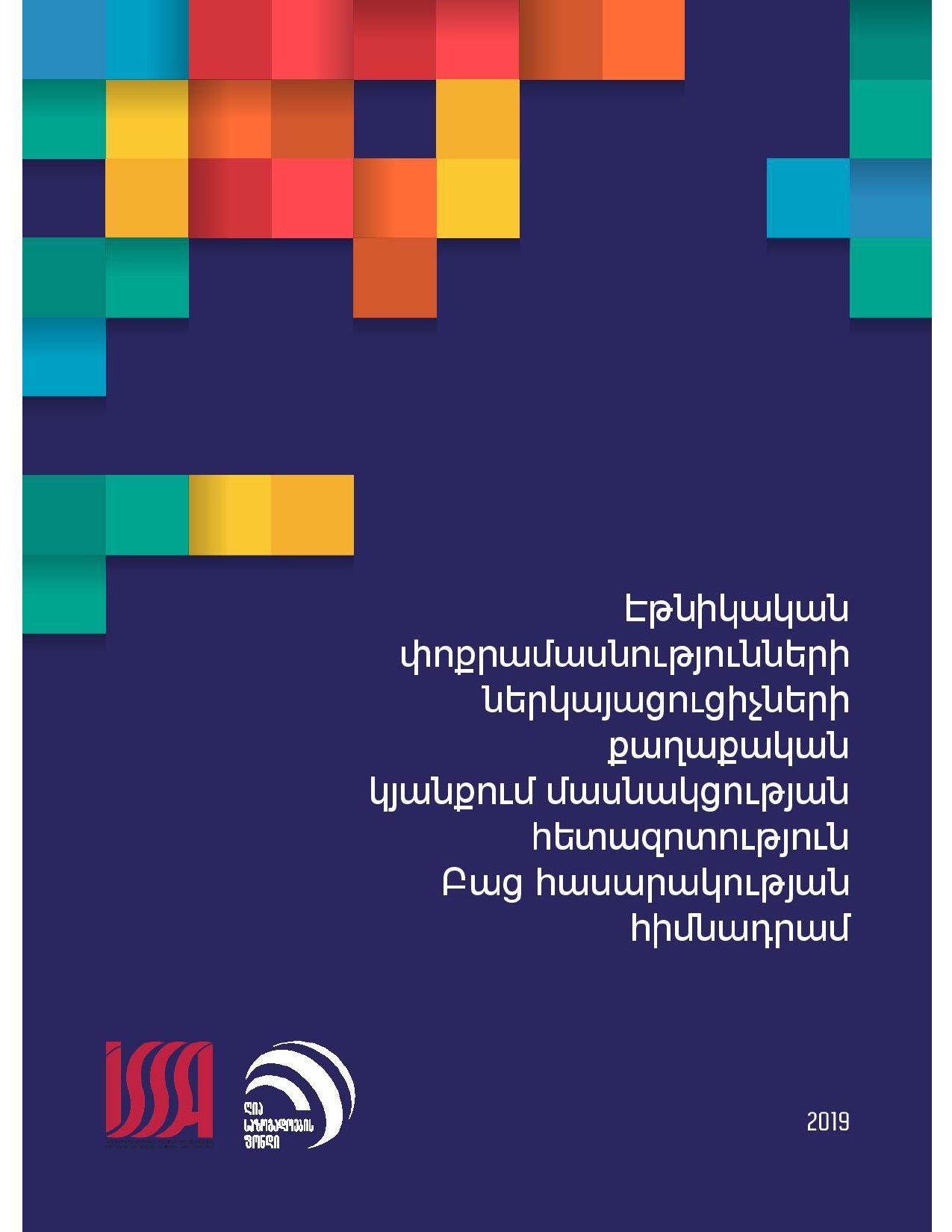
Recommendatory policy document – Improving politic…Armenian by on Scribd
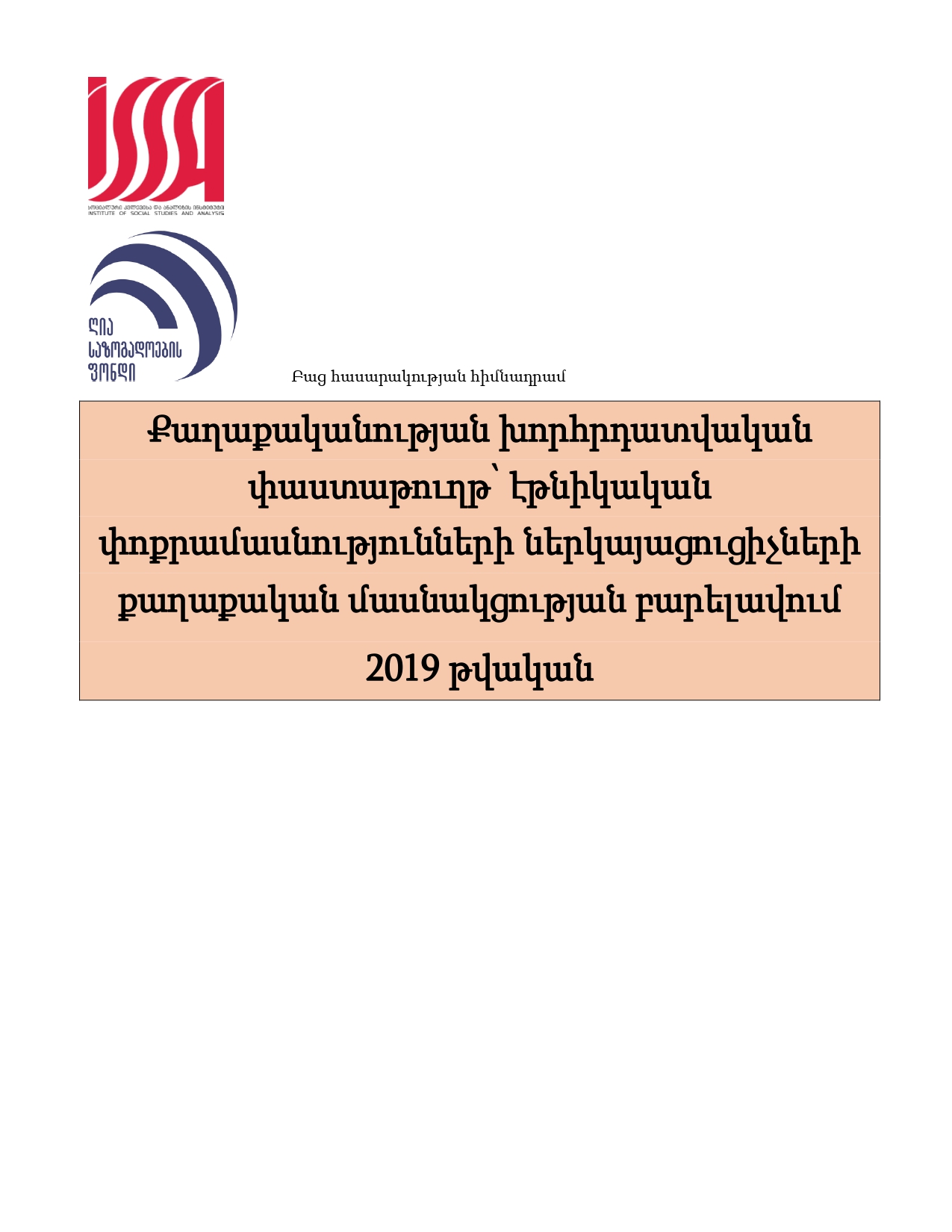
Recommendatory policy document – Improving politic…Azerbaijanian by on Scribd
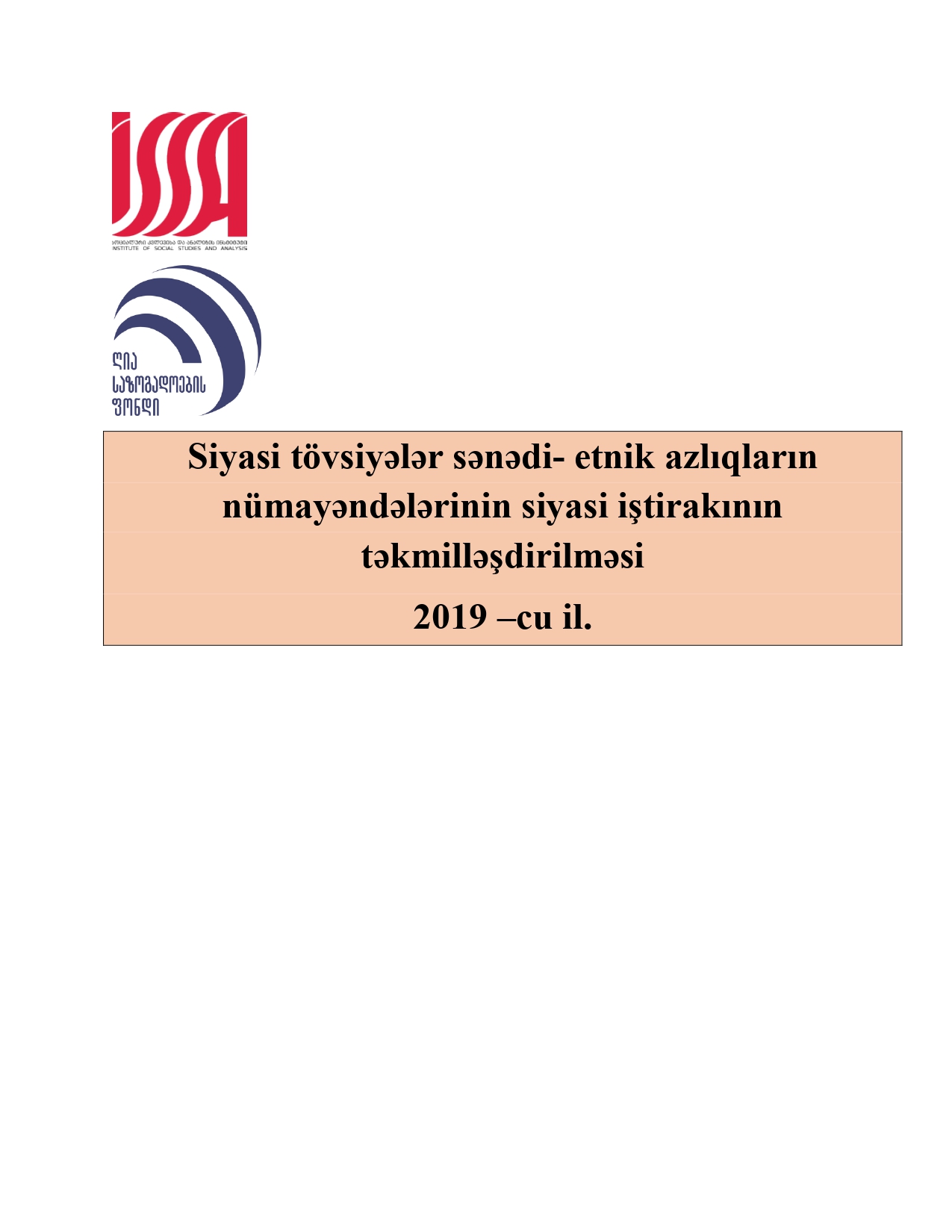
Recommendatory policy document – Improving politic…English by on Scribd
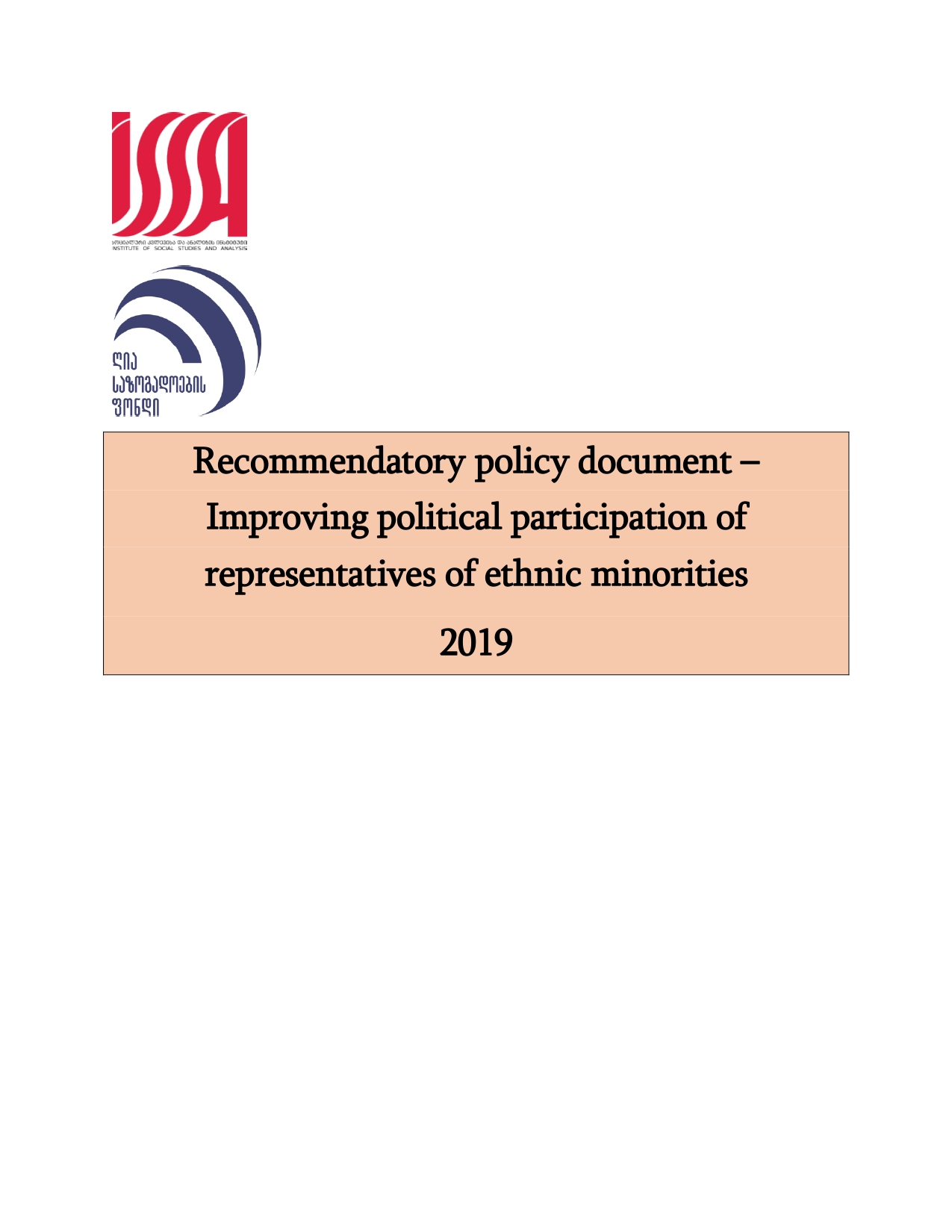
Recommendatory policy document – Improving politic Georgian…by on Scribd
